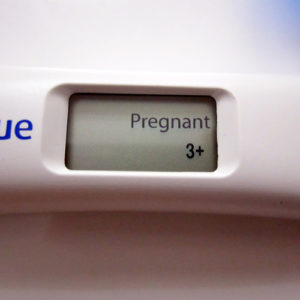More women today are having babies later, with the average age of first-time mums now 30. This reflects changing social trends, as women focus on their career and education before starting a family.
However, there is no perfect time to have a baby. It’s a very personal decision based on your individual circumstances. Here are the key factors to consider when deciding the ideal age for you.
Fertility and Age-Related Risks
While women are born with all the eggs they’ll ever have, fertility does gradually decline from your 30s as egg quantity and quality decreases. After 35, your fertility begins to more rapidly decline.
- In your late 30s, you’re around 50% less likely to get pregnant compared to your early 20s. However, 75% of women will still conceive within a year up to 35.
- From 35, risks increase for difficulties conceiving, complications in pregnancy, miscarriage, Down’s syndrome and stillbirth.
So while risks do increase with age, getting pregnant in your late 30s is still achievable for many women. The decline is gradual rather than a sudden cutoff at 35. Understanding your biological clock allows you to make informed choices.
Managing Fertility Decline
There are steps women can take to help maintain fertility as they age:
- Lead a healthy lifestyle. Being fit, a normal weight and avoiding smoking and excess alcohol can offset age-related fertility decline.
- Seek advice sooner rather than later. Speak to your doctor if you’ve been trying to conceive unsuccessfully for 6 months from 35, or after a year if under 35.
- Consider egg freezing. Freezing eggs in your 20s or early 30s can prolong fertility for use later on. Whilst fertility does decline after 35, conception is still possible into your 40s with frozen eggs.
Emotional Readiness
Equally important as your age is feeling emotionally ready for parenthood and the huge life change a baby brings. Our mums’ advice was simply:
- Have a baby when you feel ready, rather than focus on a specific age. There’s no perfect choice, just the right one for you.
Financial stability was a key aspect of feeling ready, to provide security for children. Some felt they should have started trying earlier. Others were glad they delayed until they’d travelled and focussed on their career.
Your Partner’s Age Matters Too
A woman’s fertility decline gets the most focus, but your partner’s age impacts conception chances and pregnancy health too:
- Whilst women are born with all their eggs, men continue producing sperm. However, its quality and volume does deteriorate as they age.
- From 35, risks increase of genetic defects, schizophrenia and autism. Over 40, their infertility rises.
- An older male partner may increase the risks of miscarriage and premature birth. Their worsening sperm quality is thought responsible.
So if you’re starting a family later, consider your partner’s age and not just your own biological clock. A younger male partner may offset risks.
Relationship Stability
Children bring challenges as well as joy. Ensure your relationship is secure and you have a solid foundation as a couple before taking the leap into parenthood.
Achieving Goals
If having a baby now could jeopardise important plans, wait until you’re ready to prioritise parenthood over previous goals.
For example, if you want to complete your education, travel or reach certain career milestones first, then delay pregnancy until you’re ready to focus on raising children.
Healthy Pregnancy at Any Age
Whilst risks increase with age, there are steps you can take to help ensure a healthy pregnancy:
- If you have an existing health condition like diabetes or high blood pressure, get this fully under control before conceiving.
- Take folic acid and limit alcohol, smoking and caffeine. Being a healthy weight also lowers risks.
- Attend all antenatal appointments to promptly identify and manage any issues. Speak to your doctor about screenings relevant to your age.
- Look after your wellbeing. Healthy eating, light exercise and stress management all contribute to a trouble-free pregnancy.
So whilst age does impact risks, a healthy lifestyle and proactive approach can do much to offset this and ensure the best pregnancy outcomes.
Financial Security
Children inevitably bring extra costs. Determine whether you have financial stability and are ready to cover the expense of raising a child.
Added financial stress could otherwise impact your ability to provide necessities for your child. If money is already tight, wait until your situation improves.
Benefits of Older Motherhood
There are some advantages to waiting until your late 30s or 40s to have kids:
- Older mums tend to be more educated and have higher incomes.
- Studies show they have children who do better in cognitive tests.
- Greater emotional maturity and life experience are pluses too.
So while risks do increase, some benefits come with later motherhood. There is no perfect one size fits all answer on the ideal age to have a baby. Assess your personal circumstances and make the choice that feels right for you.
Photo by Zoom Baby
Zoom Baby is a leading supplier of Pregnancy Tests and Ovulation Test Kits





